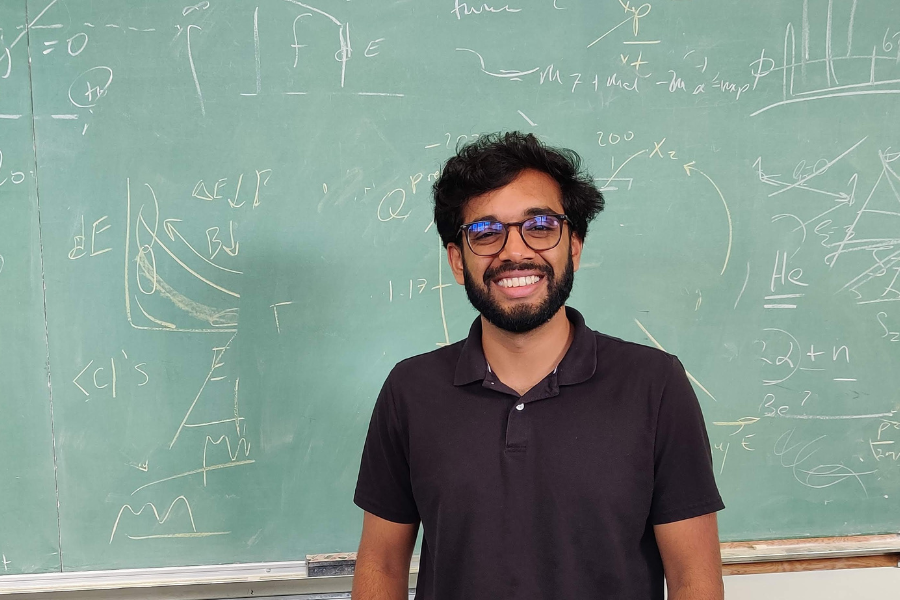Vignesh Sitaraman

"Expertise. Opportunities. Passion. Advancement. Personal Growth."
College: Arts and Sciences
Degree Program: Physics
Degree: Doctoral
Why FSU?
The FSU Department of Physics was a very attractive option for me as a prospective grad student. The people here are wonderful and were extremely helpful when I was confused about which grad school to choose and were honest and transparent about what the grad school experience was like. The department is well-ranked and has access to an accelerator facility. My primary research interest is nuclear astrophysics, and FSU has a robust program with many people at the forefront of the field. The facility on campus allows for experiments to be conducted on my own timeline, and we have lots of opportunities to travel to other national facilities for experience as well. The best of both worlds!
Motivation to pursue a graduate degree
After completing my undergrad in India, I got interested in the question of how we all came to be, but from a physical point of view. There are still so many open questions as to how the elements are formed in the universe, and I got deeply involved in trying to figure it out. I ended up working in a research lab for a year to see if this was a field that I would be really interested in. My fellowship only made me even more interested, and I ended up joining grad school to pursue my interest in the field.
Importance and/or impact of research and work
My research is in the field of nuclear astrophysics, and a lot of my research is focused on providing insights into how the elements were formed and distributed throughout the universe, including the processes that led to the formation of heavy elements such as gold and platinum. Nuclear reactions play a crucial role in the evolution of stars, and nuclear astrophysics also delves into the processes that drive stellar evolution and the ultimate fate of stars. Our study also has many practical applications, for instance, in the fields of medicine and energy where these reactions play a major role.
Career aspirations
I currently aspire to continue my research in the field of nuclear astrophysics and further branch out into research in the field of medical physics and the development of medical isotopes for treatment and diagnostics. I wish to stay in academia and hope to teach at the undergraduate and graduate levels in the future!
Advice for anyone considering graduate school
Grad school can be a wonderful and transformative experience, but it is also not for everyone. It requires the commitment of a lot of time and energy, thus it is important to make sure that the grad school you choose is best suited for you, and that it offers a cooperative and collaborative environment for you to thrive. Another thing to consider is that grad school is a great place to connect with other students and faculty members in your field and thus expand your professional network. The last thing is that grad school can often be a stressful experience, and maintaining a good work-life balance and prioritizing self-care can make your grad school experience much more enjoyable.
Accomplishments during graduate career
I have presented at multiple conferences as part of my grad career and have been instrumental in the success of several experiments both at the John D. Fox Nuclear Physics Laboratory and at national and international facilities such as TRIUMF, Vancouver (Canada), and FRIB, Michigan. I also received different fellowships and awards: Junior Research Fellow at TIFR (2018), India, the Adelaide D. Wilson Graduate Fellowship from the Fellows Society (2019), and the AAAS scholarship (2020).
